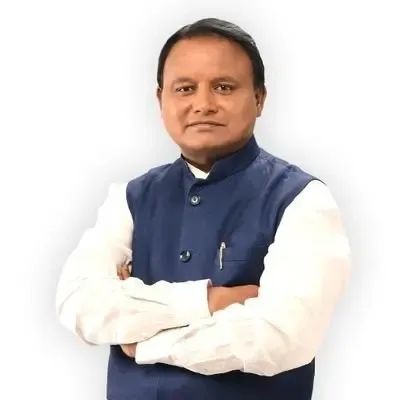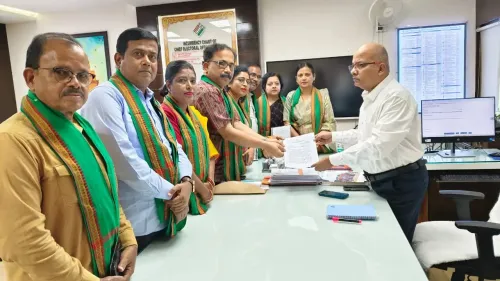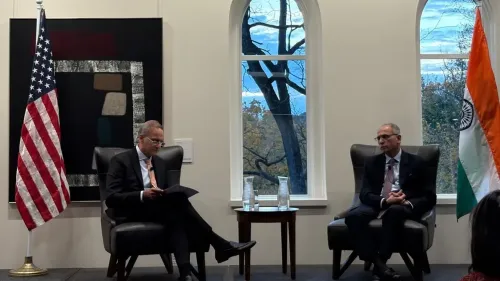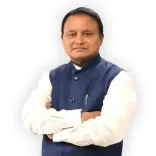Karnataka Government Considers Supreme Court Action on Muslim Quota Legislation
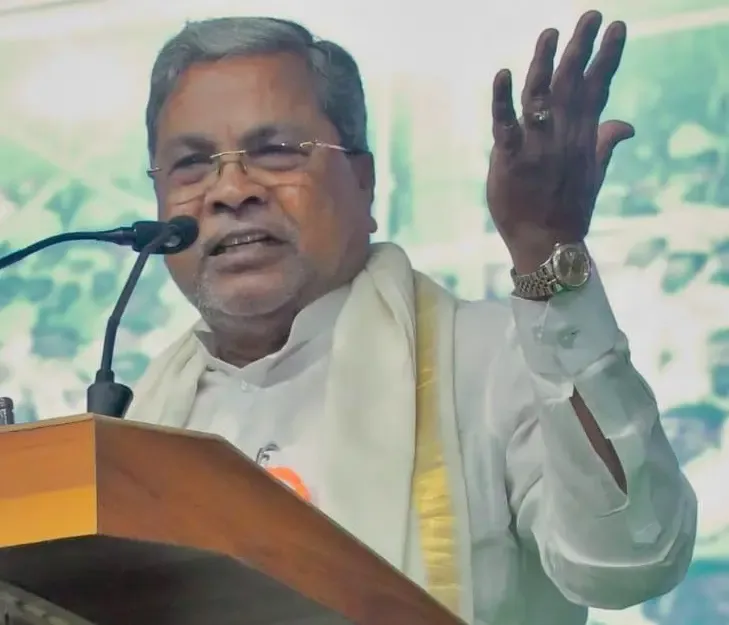
Synopsis
Key Takeaways
- Karnataka may challenge the Governor's actions in the Supreme Court.
- The Muslim Quota Bill seeks a 4% reservation.
- Governor cites constitutional issues regarding religion-based reservations.
- Political tensions between Congress and BJP are escalating.
- Deadline set by the Supreme Court for Presidential decision.
Bengaluru, April 17 (NationPress) The Congress-led administration in Karnataka indicated on Thursday that it may approach the Supreme Court following the decision of Governor Thaawarchand Gehlot to send the Muslim Quota Bill to the President for her approval.
The Governor has held the Karnataka Transparency in Public Procurement (Amendment) Bill, 2025, which seeks to implement a 4 percent reservation for Muslims in government civic contracts, awaiting the President's consent, citing possible constitutional issues.
Addressing the situation, Chief Minister Siddramaiah's Legal Advisor and MLA A. S. Ponnanna remarked, 'This is not merely about one bill; the honorable Governor of Karnataka has been behaving similarly to the Governors of Tamil Nadu, Kerala, and West Bengal.
Ponnanna further expressed, 'Wherever there is a non-BJP government, the BJP appears to be maneuvering through the Governor's office. This sets a very concerning precedent, and despite the ruling of the Supreme Court in the Tamil Nadu case, our Governor's conduct in this regard is intolerable.'
'We are left with no choice but to seek recourse in the Supreme Court,' Ponnanna added.
Medical Education Minister Sharan Prakash Patil stated, 'The Supreme Court has established a timeline; even the President of India must make a decision within three months. We shall wait and observe.'
Congress MLA Rizwan Arshad alleged, 'This constitutes a political scheme. The Governor behaves like a representative of the BJP. According to the Constitution, the 4 percent reservation allotted to backward classes is not religion-based. The Backward Classes Commission has categorized 2A and included Muslims in this classification.'
Previously, the Governor communicated to the state government that the Constitution of India prohibits reservations based on religion, as this contravenes the principles of equality under Article 14, non-discrimination under Article 15, and equal opportunity in public employment under Article 16.
The Governor also asserted in his correspondence that the Supreme Court shares a similar viewpoint on this issue.
Earlier, Prime Minister Narendra Modi accused the Congress administration in Karnataka of providing reservations in tenders based on religion, claiming that such actions 'deprived' the rights of Scheduled Castes (SCs), Scheduled Tribes (STs), and Other Backward Classes (OBCs).
Prime Minister Modi further argued that such provisions are not only unconstitutional but also betray the principles championed by B. R. Ambedkar, the architect of the Indian Constitution.

